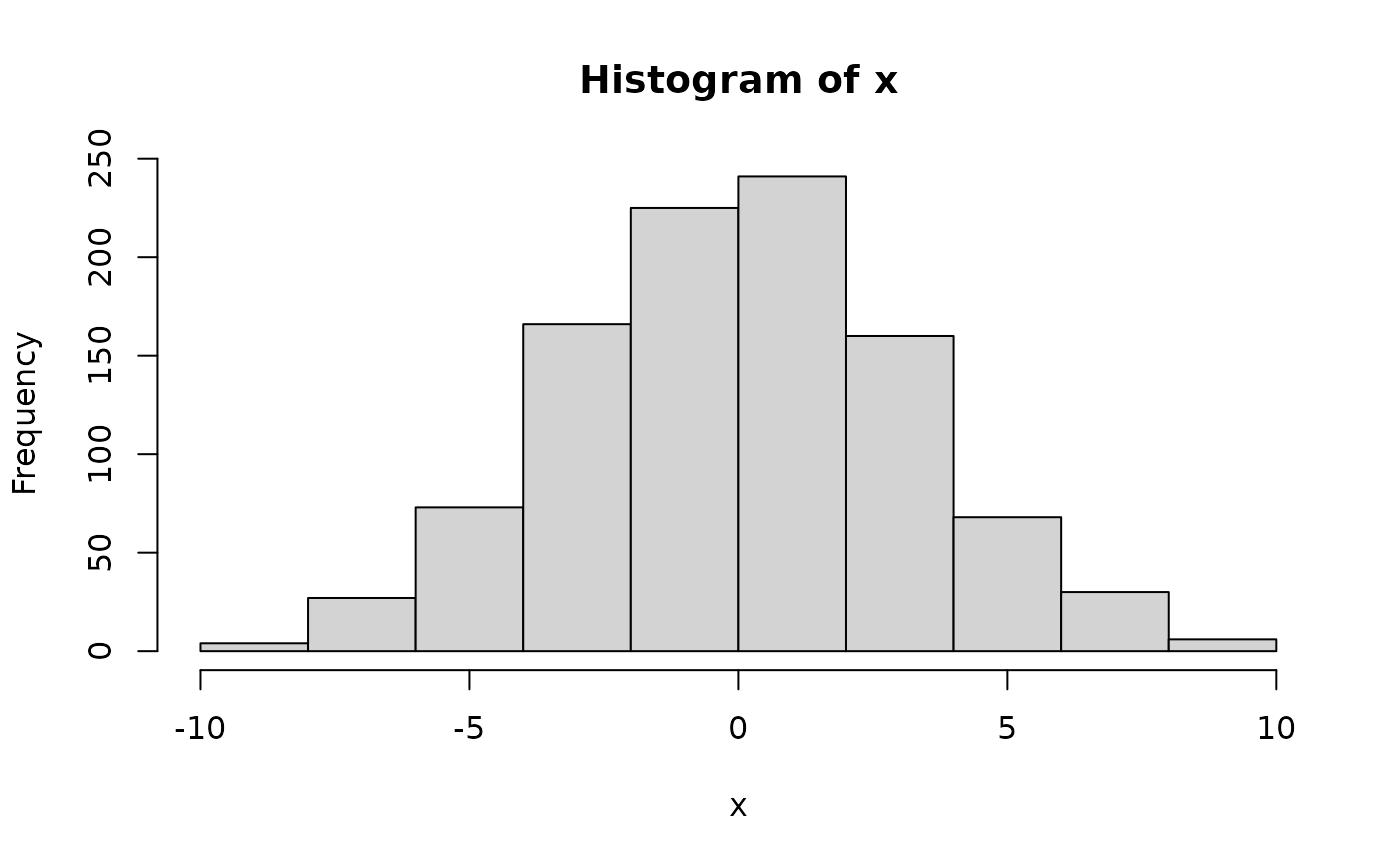This function may be useful to advanced users of TrialSimulator. It
creates a wrapper function of a random number generator, while fixing a
subset or all of arguments. This function is design to prevent inadvertent
changing to arguments of random number generator. See examples below.
Arguments
- fn
random number generator, e.g.,
rnorm,rchisq, etc. It can be user-defined random number generator as well, e.g.,PiecewiseConstantExponentialRNG.- ...
arguments for
fn. Specifying invalid arguments can trigger error and be stopped. There are three exceptions. (1)rngcan be passed through...to give true name offn. This could be necessary as it may be hard to parse it accurately inDynamicRNGFunction, or simply for a more informative purpose in some scenarios. (2)var_namecan be passed through...to specify the name of generated variable. (3)simplifycan be set toFALSEto convert a vector into a one-column data frame in returned object. This happens for built-in random number generators, e.g.,rnorm,rbinom, etc. These three arguments will not be passed intofn.
Value
a function to generate random number based on fn and arguments in
.... Specified arguments will be fixed and cannot be changed when invoking
DynamicRNGFunction(fn, ...)(). For example,
if foo <- DynamicRNGFunction(rnorm, sd = 2),
then foo(n = 100) will always generate data from normal distribution of
variance 4. foo(n = 100, sd = 1) will trigger an error. However,
if an argument is not specified in DynamicRNGFunction, then it can be specified
later. For example, foo(n = 100, mean = -1) will generate data from N(-1, 4).
Examples
# example code
dfunc <- DynamicRNGFunction(rnorm, sd = 3.2)
x <- dfunc(1e3) # mean 0 and sd 3.2
hist(x)
 y <- dfunc(1e3, mean = 3.5) # mean can be changed
mean(y)
#> [1] 3.477097
try(z <- dfunc(1e3, sd = 1)) # error because sd is fixed in dfunc
#> Error in dfunc(1000, sd = 1) : Cannot override fixed arguments: sd
y <- dfunc(1e3, mean = 3.5) # mean can be changed
mean(y)
#> [1] 3.477097
try(z <- dfunc(1e3, sd = 1)) # error because sd is fixed in dfunc
#> Error in dfunc(1000, sd = 1) : Cannot override fixed arguments: sd
